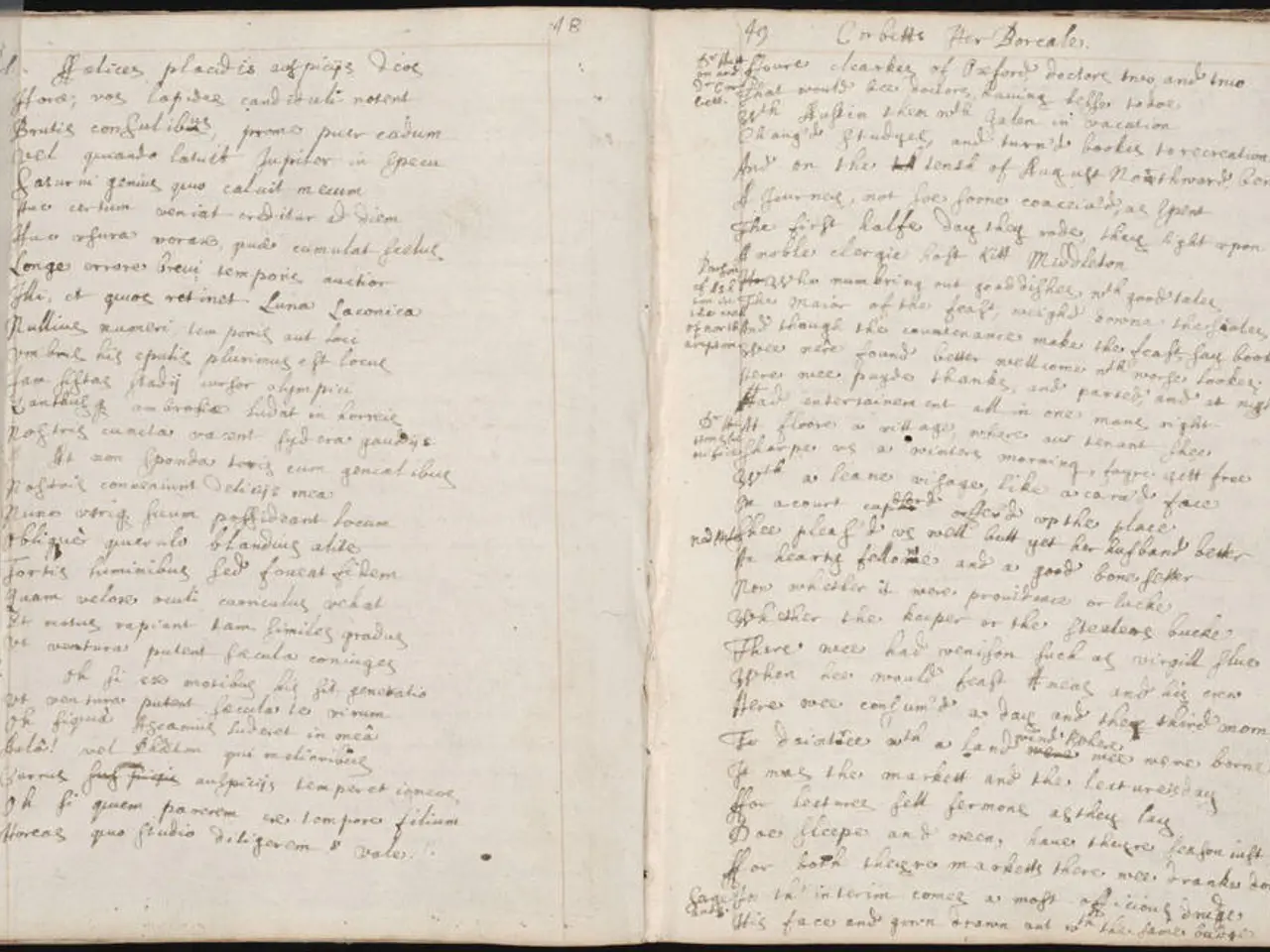Diversity in Composition: Prioritizing Personal Vision over Market Demands in Writing
In the realm of literature, authors often embark on writing journeys driven by more than just the prospect of commercial success. A recent case in point is a talented writer who has penned a captivating, quasi-epic, contemporary political thriller fantasy novel.
This novel, currently under wraps, features a bi main character who experiences a significant plot point in the form of a marriage to another man. The writer's fascination with the world and characters they've built has led to continued writing, as they find joy in exploring the intricacies of their creations.
Yet, the writer acknowledges that not all their stories may be publishable or of the right length. Sometimes, they delve into narratives that may not find a place in the publishing market. However, this doesn't deter them, as writing is, for them, a deliberate process of exploration, expression, and honing ideas that resonate deeply with them.
The writer is well-aware of the potential consequences that come attached to certain pieces, such as novellas selling poorly. Yet, they remain undeterred, choosing to focus on the personal, artistic, and intellectual rewards that writing offers.
This writer's approach to their craft is reflective of the broader writing community. Many authors, driven by intrinsic motivation, pursue projects that may not initially seem marketable or publishable. They engage in this process to clarify their own understanding, develop their craft, and communicate themes or stories they find meaningful, regardless of external success or audience reception.
The writing process itself—including brainstorming, drafting, and revising—is a means to develop clarity, generate creativity, and maintain momentum in crafting a coherent narrative. Authors might explore multiple directions or versions of their work to find what best expresses their intended themes or emotional beats.
Crucially, this intentional choice enables authors to produce work aligned with their artistic vision rather than simply chasing market trends. The writer, for instance, plans to write more mainstream work in the future, but they do so with a clear understanding of their creative goals and the stories they wish to tell.
In conclusion, the act of writing serves personal, artistic, and intellectual purposes beyond immediate commercial success for many authors. It is a process of discovery, problem-solving, and expression guided by the author's internal goals and creative drive.
This writer's dedication to writing goes beyond seeking commercial success, as they prioritize personal growth and self-development through the exploration and expression of ideas in their creations, contributing to their education-and-self-development. The writing process, for them, is also a journey aimed at promoting personal growth, thus aligning with the broader writing community who engage in this process for intellectual, artistic, and personal rewards.




